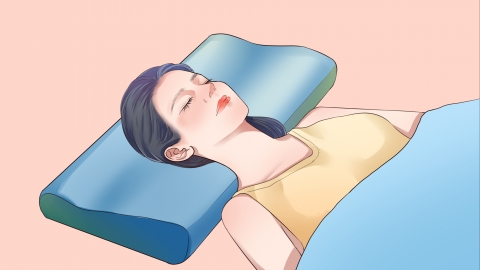What is the most effective way to treat a stiff neck?
Generally speaking, there is no such thing as "the most effective way to treat a stiff neck." A stiff neck may be caused by improper sleeping posture, neck exposure to cold, neck muscle strain, cervical facet joint disorder, or cervical spondylosis of the nerve root type. It is recommended to seek medical attention promptly, identify the underlying cause, and then improve the condition through general treatments, medication, and other methods under a doctor's guidance. The specific analysis is as follows:

1. Improper sleeping posture: Sleeping with a pillow that is too high or too low, or sleeping in a twisted position, can keep the neck muscles in a stretched state for a prolonged period, resulting in stiffness and pain upon waking. Adjust the pillow height to shoulder width, maintain a naturally neutral neck position, and apply a warm towel at around 40°C to the neck for 15-20 minutes each time to relieve muscle tension.
2. Neck exposure to cold: When the neck is exposed to cold air during sleep, blood vessels constrict, causing muscle spasms and resulting in a stiff neck. Keep the neck warm at night by wearing a light scarf, and use an infrared lamp to irradiate the neck after exposure to cold in order to promote local blood circulation.
3. Neck muscle strain: Prolonged periods of looking down at a phone or working at a desk can cause chronic tension in the neck muscles, making stiff necks more likely to occur and recur. Reduce the time spent looking down and perform neck rotation exercises every hour of work. Apply medications such as diclofenac diethylamine gel, flurbiprofen gel plasters, or musk bone-strengthening plasters to the affected area as directed by a physician to relieve pain.
4. Cervical facet joint disorder: Sudden twisting of the neck can cause displacement of the cervical facet joints, leading to a stiff neck accompanied by limited movement. A professional physician must perform manual cervical joint reduction to restore the joint position. After reduction, wear a cervical collar for a short period to protect the neck and avoid sudden head movements.
5. Cervical radiculopathy: Degeneration of the cervical spine causes disc herniation that compresses nerve roots, leading to frequent episodes of stiff neck accompanied by arm numbness. Take medications such as ibuprofen sustained-release capsules, celecoxib capsules, or eperisone hydrochloride tablets as directed by a physician to alleviate pain and muscle spasms.
In daily life, choose a cervical pillow with good support and avoid sudden head-turning movements. During leisure time, perform the "figure-eight" exercise to stretch the neck muscles, maintain balanced neck muscle strength, reduce the frequency of stiff neck episodes, and protect cervical spine health.









